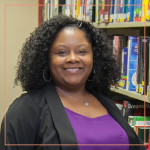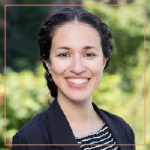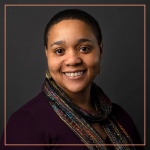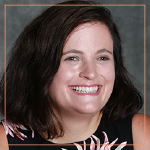Equity in Action: Solidarity in Social Justice

Explore the fundamentals of justice, equity, diversity, and inclusion and how to work in solidarity with all members of your library community.
Course Description
Guest speaker sessions via Zoom:
Tuesdays, April 26, May 3, and 10, from 2:00 to 4:00 pm ET (recordings available)
Workshop:
Asynchronous, facilitator-led workshop over 3 weeks
Learn the fundamentals of justice, equity, diversity, and inclusion and how to work in solidarity with all members of your library community -- including BIPOC, the disability community, the queer community, the undocumented and underserved. Of course, that includes co-conspiratorship between members of one marginalized group and another–and acknowledging that many people have more than one such identity.
This practical, how-to course explores the building blocks of social justice at the library and examines how to ensure that equity work is truly inclusive of all people, including staff and patrons, by centering the lived experience and priorities of those most directly impacted. The focus is on understanding the issues and their context, and finding appropriate ways to respond to complex situations.
In this online guest speaker program and workshop, you’ll learn from an outstanding group of experts of key concepts of solidarity and anti-oppression and define a personal project that inspires action in your community.
The live sessions run on Tuesdays, April 26, May 3 and 10, from 2:00-4:00 pm ET with an ongoing facilitator-led workshop over 3 weeks. All sessions will be recorded and can be viewed at your convenience. Don’t miss this opportunity!
Live sessions are also available on demand
Can’t make a live session? All guest speaker sessions are recorded and available on demand following the initial broadcast.
Certificate of completion provided
15 professional development credits are available
For support with online courses, please contact libraryjournal@edmaker.co
Inspiring Live Guest Speakers + Project-Based Learning
Engage with presenters via live video stream, visual presentations, and chats, and workshop practical solutions and personal work in a group environment, with guidance from an advisor.
Online Course Features
-
Instructor-led online course features personalized interaction over 3+ weeks
-
Real-time guest speakers and conversation via live video stream (with recordings available afterward)
-
Workshop assignments to help you make progress on your goals
-
Individualized attention from course facilitators who work with you in a coaching environment in the workshop to help sort out challenges
-
Ongoing group conversation via discussion forums
-
Supporting resources (articles, videos, worksheets) in the online classroom to provide a foundation for your work
-
Access all course content for six months after the course ends
-
Bonus: Register early and get immediate access to archival video recordings from related courses and other bonus content

2022 Advisory Committee
We thank the following course advisors who have helped shape the program and course work.
|
|
Michelle Khưu, Experiential Learning Specialist at Skokie Public Library |
 |
Christina Fuller-Gregory, Assistant Director of Libraries, South Carolina Governor's School for the Arts and Humanities, Greenville |
|
|
Kiera Parrott, Director of Darien Library, CT |
Group Rates
Discounted registration fees are available for groups of 3 or more.
Send us a request for a quote.
By registering for this event you confirm that you have read and agree to our Code of Conduct.
For support with online courses, please contact libraryjournal@edmaker.co.
Week 1: Tuesday, April 26, 2022
Session 1 | 2:00-2:45 pm ET
Librarianship Rooted in Anti-Oppression and Inclusion
Building truly inclusive library spaces requires us to act in solidarity and invest in anti-oppression work. In this session, you’ll learn how to put a personal stake in your engagement with social justice issues by exploring what allyship looks like in the library context, as well what it means to focus on social justice as a cornerstone of a library culture. You’ll gain a deeper understanding of where information literacy and anti-oppression work converge, and how you can engage in this work from within your sphere of influence. We’ll also discuss emotional labor and understanding the toll of this work for BIPOC, LGBTQIA+, and disabled librarians.
Speaker:

|
CJ Ivory, Assistant Professor & Instruction Librarian at University of West Georgia |
Workshop Q&A | 2:45-3:00 pm ET
An introduction to this week’s assignment and an overview of what to expect from the online workshop in this course
Session 2 | 3:00-3:45 pm ET
Dismantling White Supremacy Culture in the Library
Working to counter the harm caused by centuries of white supremacist ideology requires both the understanding of how white supremacy shows up in libraries, and an action-based commitment to shift from a more individualized change-based approach to a more systemic focus. In this session, you’ll learn how white supremacy is baked into our institutions and how it manifests on individual and systemic levels. In addition to learning how to identify explicit and implicit work-based racism and identify white supremacy, you will come away with a greater understanding of how this practice impacts libraries (public, school, and academic libraries) and the steps needed to dismantle this practice.
Speaker:

|
Karla J. Strand DPhil, DPhil, MLIS, Gender and Women's Studies Librarian, Univ. of Wisconsin |
Week 2: Tuesday, May 3, 2022
Session 1 | 2:00-2:45 pm ET
How to Handle Microaggressions in the Library and Workplace
Microaggressions often fly under the radar in workplaces and are therefore insidious in addition to being incredibly damaging. Left unaddressed, microaggressions can negatively impact organizational culture. Learning to spot microaggressions when they happen and address them proactively so that you can promote safety for patrons and staff is a key component of building solidarity with everyone in your library community – both internally and externally. In this session, you’ll learn what microaggressions are, how to identify them, and how to respond, so you’re prepared when they happen and can advocate for yourself and others within your community.
Speaker:

|
Alessandra Otero-Ramos, Arts and Humanities Librarian at SUNY Geneseo |
Workshop Q&A | 2:45-3:00 pm ET
An introduction to this week’s assignment and an overview of what to expect from the online workshop in this course
Session 2 | 3:00-3:45 pm ET
Aligning Accessibility and Inclusion
Learn how to advocate for disability justice at your library in this session. You’ll learn how to align your physical spaces and accessibility level with your commitment to inclusion and solidarity, and ensure that accessibility is a priority, not an afterthought. (This may include details that are not as obvious, like scents, lighting, stimming, sensory overwhelm, and seating to accommodate a range of bodies.) You’ll learn about short- and long-term changes you can make to improve accessibility at your institution, and ensure equitable services and access to members of your community and coworkers who have disabilities, both visible and invisible.
Speaker:
|
|
Clayton A. Copeland, Ph.D., Professor University of South Carolina |
Week 3: Tuesday, May 10, 2022
Session 1 | 2:00-2:45 pm ET
Free Speech, the Myth of Neutrality, and Libraries as Intended Safe Spaces
What does an inclusive library look like? Does providing access to information include access to information that may be harmful such as hate speech or disinformation? What does it mean for a library to be a safe space? Is it possible for libraries to maintain neutrality in the face of oppression? In this session, we’ll discuss how to deal with real world manifestations of these important ideological questions. You’ll learn how to address these concerns when – and before – they come up, lead a conversation with fellow staff, and communicate your library’s stance to your community so that you’re thoughtful and clear about your stance while working to maintain solidarity.
Speaker:
 |
Emily Knox, Associate Professor and Director of Graduate Programs at University of Illinois Urbana-Champaign |
Workshop Q&A | 2:45-3:00 pm ET
An introduction to this week’s assignment and an overview of what to expect from the online workshop in this course
Session 2 | 3:00-3:45 pm ET
Trans Inclusion in Library Work
Trans and gender diverse people are part of every aspect of libraries, from patrons to employees to students to volunteers. However, ignorance and bigotry around gender diversity remains prevalent, which means that library workers need to actively self-educate and take intentional steps to create safe and welcoming spaces for people of all genders. In this session, you will start by learning about why gender inclusion is an essential component of all library work. An overview of what this looks like in practice will be supported by specific examples from many different aspects of libraries. Finally, you will be guided through tools and resources that will enable you to continue your education and meaningfully incorporate gender inclusion into your own position.
Speaker:
 |
Stephen G. Krueger, Scholarly Publishing Librarian at Dartmouth College |
Session 3 | 3:45-4:15 pm ET
How to Be a Driving Force for Change
Angela Davis famously said that “in a racist society, it is not enough to be non-racist, we must be antiracist.” Similarly, in the face of oppression, we must be anti-oppressive. And that means active solidarity that moves beyond performative measures to truly authentic advocacy and engagement. In this closing session, we’ll discuss how you can move beyond a personal understanding of the importance of equity and inclusion to a professional commitment to them, synthesizing what you’ve learned over the last three weeks into a professional statement and mission of solidarity. You’ll hear ideas for how to move the needle within your larger organization, regardless of your role, and shift the culture of your workplace through your consistent and transparent actions toward equity.
Speaker:
|
Katie Dover-Taylor, Head of Adult Services at the William P. Faust Public Library of Westland |
 |
Clayton A. Copeland, Ph.D., Professor University of South Carolina |
 |
Katie Dover-Taylor, Head of Adult Services at the William P. Faust Public Library of Westland |
 |
CJ Ivory, Assistant Professor & Instruction Librarian at University of West Georgia |
 |
Emily Knox, Associate Professor and Director of Graduate Programs at University of Illinois Urbana-Champaign |
 |
Stephen G. Krueger, Scholarly Publishing Librarian at Dartmouth College |
 |
Alessandra Otero-Ramos, Arts and Humanities Librarian at SUNY Geneseo |
 |
Karla J. Strand DPhil, MLIS, Gender and Women's Studies Librarian, Univ. of Wisconsin |
ALREADY A SUBSCRIBER? LOG IN
We are currently offering this content for free. Sign up now to activate your personal profile, where you can save articles for future viewing






